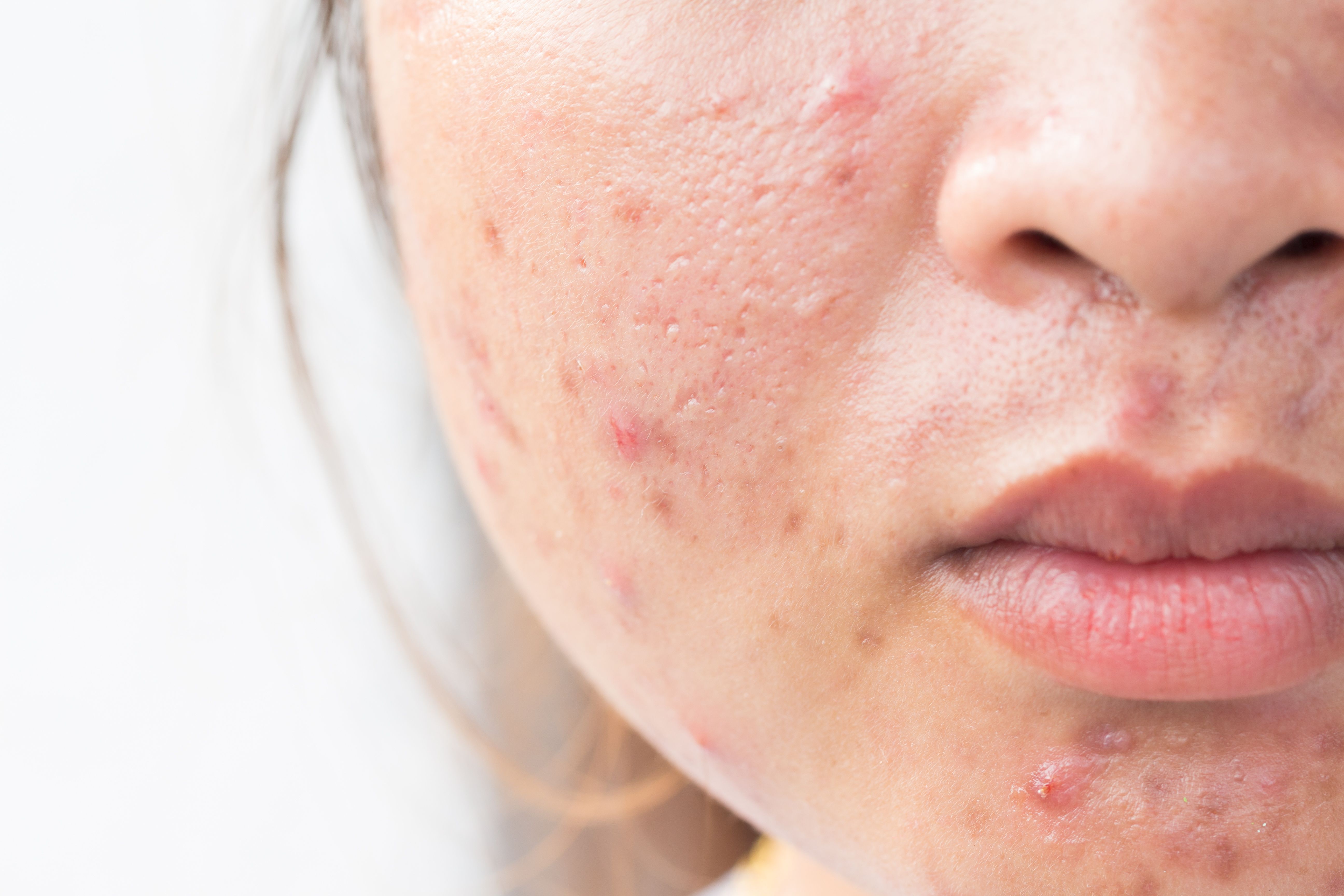- Acne
- Actinic Keratosis
- Aesthetics
- Alopecia
- Atopic Dermatitis
- Buy-and-Bill
- COVID-19
- Case-Based Roundtable
- Chronic Hand Eczema
- Chronic Spontaneous Urticaria
- Drug Watch
- Eczema
- General Dermatology
- Hidradenitis Suppurativa
- Melasma
- NP and PA
- Pediatric Dermatology
- Pigmentary Disorders
- Practice Management
- Precision Medicine and Biologics
- Prurigo Nodularis
- Psoriasis
- Psoriatic Arthritis
- Rare Disease
- Rosacea
- Skin Cancer
- Vitiligo
- Wound Care
News
Article
Study Investigates CBD as Acne and Acne Scar Treatment
Author(s):
Researchers found that the hemp derivative addressed multiple facets of acne pathophysiology and improved acne scarring overall.
Image Credit: © frank29052515 - stock.adobe.com

Due to its anti-inflammatory and lipid-modulating properties, a recent study investigated the use of cannabidiol (CBD), a hemp derivative, as an acne treatment.Several experiments were conducted to assess the effects of CBD on acne-related cellular pathways, with researchers finding the derivative addressed multiple facets of acne pathophysiology and improved acne scarring.1
Materials and Methods
Researchers prepared CBD at 6 different concentrations: 0.1, 1, 5, 10, 50 and 100 µM. The SEB-1 cell line, derived from human sebocytes and frequently referenced in acne-related research was utilized during this study, with researchers focusing on passage 28 of these cells.2
The SEB-1 cells were grown in a standard mixture including glucose, fetal bovine serum, and various additives like adenine, hydrocortisone, insulin, epidermal growth factor, and cholera toxin. For lipogenesis studies, they used a serum-free mixture of DMEM with glucose and antibiotics. Researchers wrote that the Detroit 551 cells were cultured in EMEM and DMEM with 10% fetal bovine serum at 37°C in a humid environment with 5% CO2, and the HaCaT cells were grown in DMEM with fetal calf serum, glutamine, and penicillin under similar conditions.
Treatment
Researchers treated SEB-1 cells with different concentrations of CBD and cultured for 24 hours, 48 hours, and 72 hours. After each incubation period, researchers added 10 µl of CCK8 solution (Dojindo) to each well. They assessed cytotoxicity by measured absorbance at 450 nm using a spectrophotometer after a 1-hour reaction at 37°C. To evaluate the potential cytotoxic effects of CBD on other cell lines, researchers subjected HaCaT cells to similar treatments.
Assessments
C. acnes (ATCC 6919), the causative microorganism of acne, was added to wells with different concentrations of CBD before being incubated for 48 to 72 hours under anaerobic conditions. Researchers confirmed the suppression of C. acnes by assessing the reduction using absorbance measurements.
An inflammatory cytokine quantitative PCR was performed after inducing inflammation in SEB-1 cells to confirm CBD’s anti-inflammatory effects. Researchers analyzed Keratin 16 levels in HaCaT cells using western blot and mRNA analyses with a keratin 16 rabbit antibody (Santa Cruz Biotechnology), following treatment with 0, 5, or 10 µM CBD for 24 hours. They measured the changes in collagen 1, collagen 3, and elastin infibroblasts by performing a western blot analysis, mRNA analysis, and DAPI staining.
Results
The study reported that when treated with CBD, both SEB-1 and HaCaT cells exhibited a “significant” reduction in cellular growth. Viability rates of SEB-1 cells subjected to varying concentrations resulted in the following rates:
Researchers noted that HaCaT cells exhibited a similar concentration-dependent response; however, they showed a higher threshold of inhibition with a CBD concentration of 10 µM. After 72 hours, they reported the rates of HaCaT cell viability after the application of CBD concentrations of 5 µM, 10 µM, and 20 µM as 104.5%, 68.4%, and 22.2%, respectively.
The study stated that CBD's ability to reduce inflammation caused by C. acnes by lowering cytokines like CXCL8, IL-1α, and IL-1β showed it could be helpful for treating acne overall. Researchers wrote that CBD shows promise in regulating lipid synthesis through the Akt/AMPK-SREBP-1 pathway, which could help reduce excessive sebum production linked to acne. They noted that keratinocytes appear more resilient to CBD compared to sebocytes, possibly due to better absorption and utilization of CBD or differences in cannabinoid receptor expression. This resilience may contribute to CBD's varied effects across different skin cell types.
Moving Forward
Researchers behind this study suggested that future research should focus on clinical trials to confirm CBD's effectiveness and safety for acne treatment, considering regional regulations and ethical considerations. Overall, they concluded that CBD offers a multifaceted approach to managing acne by targeting inflammation, lipid production, and potentially improving skin healing post-inflammation, suggesting it could be a valuable addition to acne treatment strategies.
References
- Lee JH, Yoon JY, Kim DH, et al. Potential of cannabidiol as acne and acne scar treatment: novel insights into molecular pathways of pathophysiological factors. Arch Dermatol Res. 2024;316(7):428. Published 2024 Jun 21. doi:10.1007/s00403-024-03131-9
- Thiboutot D, Jabara S, McAllister JM, et al. Human skin is a steroidogenic tissue: steroidogenic enzymes and cofactors are expressed in epidermis, normal sebocytes, and an immortalized sebocyte cell line (SEB-1). J Invest Dermatol. 2003;120(6):905-914. doi:10.1046/j.1523-1747.2003.12244.x
Newsletter
Like what you’re reading? Subscribe to Dermatology Times for weekly updates on therapies, innovations, and real-world practice tips.











